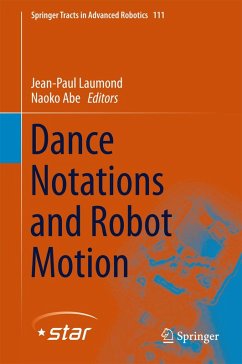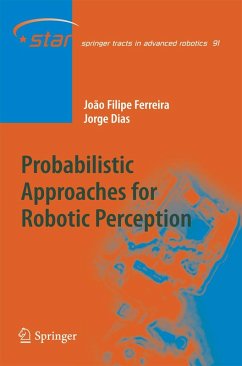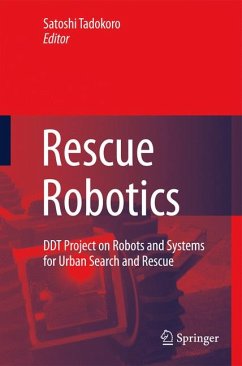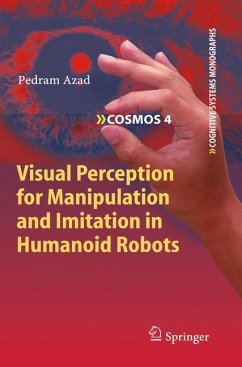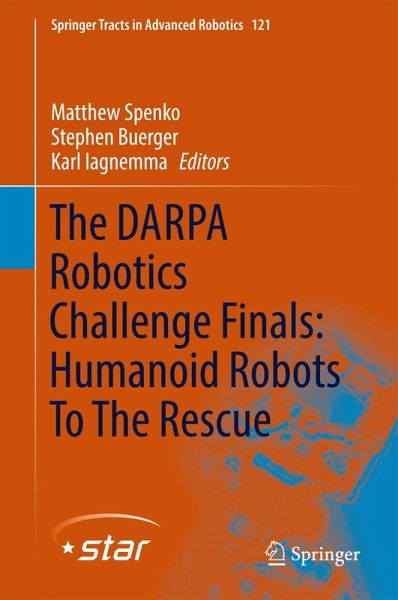
The DARPA Robotics Challenge Finals: Humanoid Robots To The Rescue (eBook, PDF)

PAYBACK Punkte
48 °P sammeln!
The DARPA Robotics Challenge was a robotics competition that took place in Pomona, California USA in June 2015. The competition was the culmination of 33 months of demanding work by 23 teams and required humanoid robots to perform challenging locomotion and manipulation tasks in a mock disaster site. The challenge was conceived as a response to the Japanese Fukushima nuclear disaster of March 2011. The Fukushima disaster was seen as an ideal candidate for robotic intervention since the risk of exposure to radiation prevented human responders from accessing the site.This volume, edited by Matth...
The DARPA Robotics Challenge was a robotics competition that took place in Pomona, California USA in June 2015. The competition was the culmination of 33 months of demanding work by 23 teams and required humanoid robots to perform challenging locomotion and manipulation tasks in a mock disaster site. The challenge was conceived as a response to the Japanese Fukushima nuclear disaster of March 2011. The Fukushima disaster was seen as an ideal candidate for robotic intervention since the risk of exposure to radiation prevented human responders from accessing the site.
This volume, edited by Matthew Spenko, Stephen Buerger, and Karl Iagnemma, includes commentary by the organizers, overall analysis of the results, and documentation of the technical efforts of 15 competing teams. The book provides an important record of the successes and failures involved in the DARPA Robotics Challenge and provides guidance for future needs to be addressed by policy makers, funding agencies, and the robotics research community.
Many of the papers in this volume were initially published in a series of special issues of the Journal of Field Robotics. We have proudly collected versions of those papers in this STAR volume.
This volume, edited by Matthew Spenko, Stephen Buerger, and Karl Iagnemma, includes commentary by the organizers, overall analysis of the results, and documentation of the technical efforts of 15 competing teams. The book provides an important record of the successes and failures involved in the DARPA Robotics Challenge and provides guidance for future needs to be addressed by policy makers, funding agencies, and the robotics research community.
Many of the papers in this volume were initially published in a series of special issues of the Journal of Field Robotics. We have proudly collected versions of those papers in this STAR volume.
Dieser Download kann aus rechtlichen Gründen nur mit Rechnungsadresse in A, B, BG, CY, CZ, D, DK, EW, E, FIN, F, GR, HR, H, IRL, I, LT, L, LR, M, NL, PL, P, R, S, SLO, SK ausgeliefert werden.





